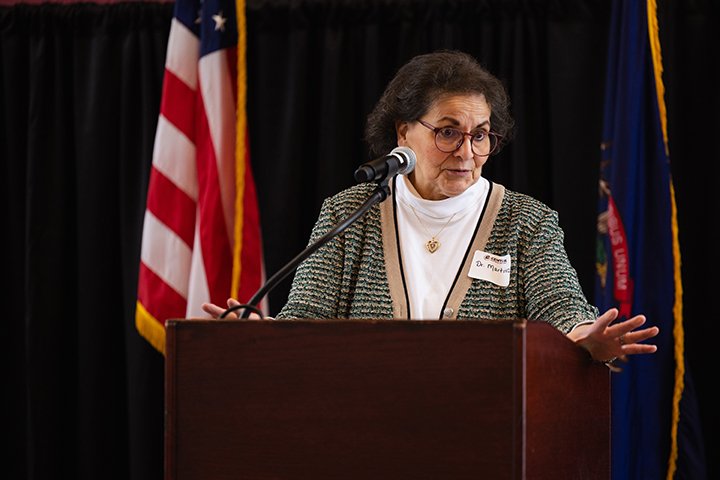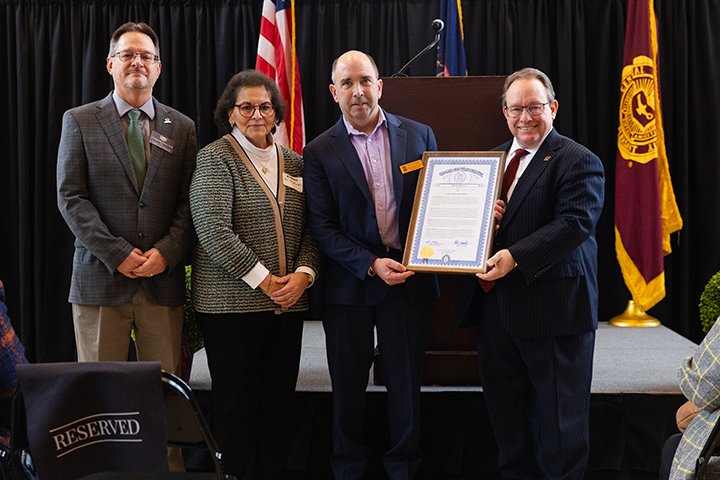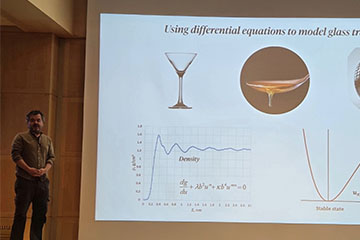CMU launches start-to-finish nursing degree
Program to help meet demand in underserved Michigan communities
Central Michigan University has added a new four-year, campus-based nursing degree to its existing programs to address growing demand in historically underserved parts of Michigan.
The first students will enter the university’s new Bachelor of Science in Nursing program in the January 2025 spring semester, with a new group of approximately 30 students starting every subsequent semester.

“We're excited to contribute to the growth of Bachelor of Science in Nursing graduates in the State of Michigan,” said Tom Masterson, dean of The Herbert H. and Grace A. Dow College of Health Professions. “There is a real need for BSN trained nurses in rural and underserved parts of Michigan, and we are helping to fill that need.
“We are so excited to be able to offer our students the opportunity to become a BSN trained nurse at CMU.”
Masterson said the growing need for nurses spurred an increase in available jobs. Medical providers that partnered with the university in launching the program said that its need is critical.
“There is a growing demand for skilled healthcare professionals to support the medical needs of communities we serve,” said Patrice Lanczak, MSN, MHA, RN, and vice president of patient services/chief nursing officer at Covenant HealthCare. “Covenant leadership appreciates and values our collaborative relationships with universities and colleges in the state who support high-quality nursing education, and we are excited to work with CMU as they launch this new program.
“As a regional hospital, Covenant is proud to offer a multidisciplinary learning environment as we continue our mission of providing extraordinary care.”
Another partner said they have opportunities waiting for graduates.
“Trinity Health Grand Rapids is looking forward to the opening of CMU’s new nursing program, and we are thrilled to partner with them as a site for students to complete their clinical requirements,” said Gina Gent, MSN, RN, NPD-BC, CEN, director of Nursing Practice & Development at Trinity Health Grand Rapids. “With national nursing shortages, new programs such as this are vital to increasing the number of nurses and providing safe patient care.
“Our hope through this partnership with CMU is that we can provide more nursing students with exposure to our health system so that they may eventually choose to begin their nursing careers with us post-graduation.”
Registered nursing jobs are expected to increase by 7.9 percent from 2020-30, creating an anticipated 6,345 job openings per year. Michigan’s current nursing programs graduate approximately 3,650 students per year, leaving an annual gap of 2,700 open positions.
The new nursing program also fulfills a core mission of CMU’s health programs.

“Since our founding in 1892, CMU has been committed to meeting the needs of Michigan,” said President Robert Davies. “We are proud to continue that legacy with this new academic degree program to address our state’s growing need for health care professionals.”
In addition to higher demand, wages for nurses increased by $10,570 from 2018 to 2023. Nurses with bachelor’s degrees from programs like CMU’s earn higher wages, receive more promotions to management roles and are more likely to work in specialized medical fields.
The program will offer a unique learning experience through CMU’s Interprofessional Education and Practice Center and a new ADA-compliant nursing skills lab. The lab will play a critical role as the university builds its program, giving CMU a competitive edge over already established nursing programs.
CMU’s program will be built from the ground floor with new technology like artificial intelligence to deliver complex health care, said Nel Martinez, hired late last year as the director of the four-year nursing program.
“I think that’s what is exciting and dynamic about it,” she said.
Martinez was hired after a nationwide search. The committee cited her dedication to nursing and expanding the profession’s reach into underserved communities. She was also identified as a supporter of mentoring and supporting students – a critical aspect of CMU’s Leadership Standards or strategic priorities.
Her first task is recruiting and hiring faculty and staff.
The program will benefit by its proximity to CMU’s medical school and the university’s new Rural Health Equity Institute. The presence of those two programs creates opportunities for collaborative learning and specialized training with other healthcare professionals.




